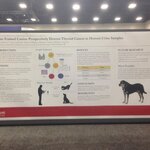A team of researchers can detect how taste is encoded in patterns of neural activity in the human brain.
That means they can basically read your mind when it comes to food.
Tastants in the mouth activate specific receptors on the tongue corresponding to each of the basic tastes: sweet, salty, sour, bitter, and savory (umami). The signal is then transduced further to the brain. How the peripheral signal is used by the central nervous system to encode taste quality is largely unknown.
In the study, participants discriminated between sweet, salty, sour, and bitter tastants while their brain…
Neuroscience

A study has found new evidence linking genetic factors associated with autism to better cognitive ability in people who do not have the condition - which means like many things in genetics it could be a small variation that separates a benefit from a detriment.
Autism is a disability often marked by significant language and speech difficulties but there is no firm relationship between autism and intelligence. Up to 70 percent of individuals with autism do have an intellectual disability but some people with the disorder have well-preserved, or even higher than average, non-verbal intelligence…

A trained scent dog has been found to accurately distinguish between benign and cancerous urine samples of thyroid cancer patients a terrific 88.2 percent of the time, according to a new study.
That canine diagnostic accuracy is only slightly less than that of fine-needle aspiration biopsy, the method generally used first to test thyroid nodules for cancer - but it is noninvasive and inexpensive.
Arny Ferrando, PhD, of the University of Arkansas for Medical Sciences, previously "imprinted," or scent-trained, a rescued male German Shepherd-mix named Frankie to recognize the smell…
Modern smartphones are wonderful devices - they let us check email we won't reply to until we get to a desktop, they take pictures and sometimes they even make a poor quality phone call.
But that convenience comes with a price: it is easy to avoid thinking for ourselves, was a caution. And it is warranted, finds a paper in Computers in Human Behavior, which suggests that smartphone users who are intuitive thinkers, more prone to relying on gut feelings and instincts when making decisions, frequently use their device's search engine rather than their own brainpower.
Smartphones allow…

A small experiment has found that people are quicker to categorize a face as being male when it is shown to the left side of the brain.
The conclusion was drawn from an analysis of responses from 42 volunteers who were asked to focus on a cross in the center of a computer screen. They were then shown faces, which were morphed from 100 percent male to 100 percent female across 280 trials, and were asked to categorize the faces as either female or male as quickly as possible.
When an image was presented to the left side of the brain, it was generally considered more male, even…

People with diabetes are prone to anxiety and depression but others with chronic diseases that require similar levels of management suffer from anxiety and depression less.
Why that might be is unclear but Joslin Diabetes Center researchers have offered an explanation, gleaned by genetically modifying mice to make their brains resistant to insulin. They found that the animals exhibited behaviors that suggest anxiety and depression, and then pinpointed a mechanism that lowers levels of the key neurotransmitter dopamine in areas of the brain associated with those conditions.
The research team…

75 percent of movies released to theaters lose money, making the film industry even less able to pick winners in the private sector than the government. Surely there has to be a better method than greenlighting a movie because another studio is doing the same movie, or because someone has heard of M. Night Shyamalan.
A new study finds that brain activity visible through electroencephalography (EEG) could be a better barometer of success, at least if making money is the goal.
For the study, the authors sat participants in comfortable chairs in a darkened room in front of a computer…

A new paper challenges a long-accepted hypothesis about the role the hippocampus plays in our unconscious memory.
For decades, neuroscientists have believed that this part of the brain is not involved in processing unconscious memory, the type that allows us to do things like button a shirt without having to think about it, but research by University of Texas at Dallas lecturer Dr. Richard Addante raises doubts about that.
Much of the knowledge about the hippocampus and how our brains organize memory comes from research at the Massachusetts Institute of Technology on an amnesia…

Though adopting a whole-food diet has become popular in some circles, is it really going to help you? Perhaps, perhaps not.
One reason to err on the side of caution and not chase diet fads is that fads tend to be expensive and their benefit is unknown. A gluten-free diet, for example, will be 242 percent higher cost and the extra sugar, extra fat, hydroxypropyl methyl cellulose and xanthan gum in gluten-free foods are not a health positive.
What about the whole food diet?
The belief is that a whole food diet is 'eating as close to natural as possible' - that means no refined sugar or…
Drinking coffee may lower risk of developing multiple sclerosis (MS), according to a new paper out today
For the study, researchers looked at a Swedish study of 1,629 people with MS and 2,807 healthy people, and a U.S. study of 1,159 people with MS and 1,172 healthy people. The studies characterized coffee consumption among persons with MS one and five years before MS symptoms began (as well as 10 years before MS symptoms began in the Swedish study) and compared it to coffee consumption of people who did not have MS at similar time periods.
The study also accounted for other factors…